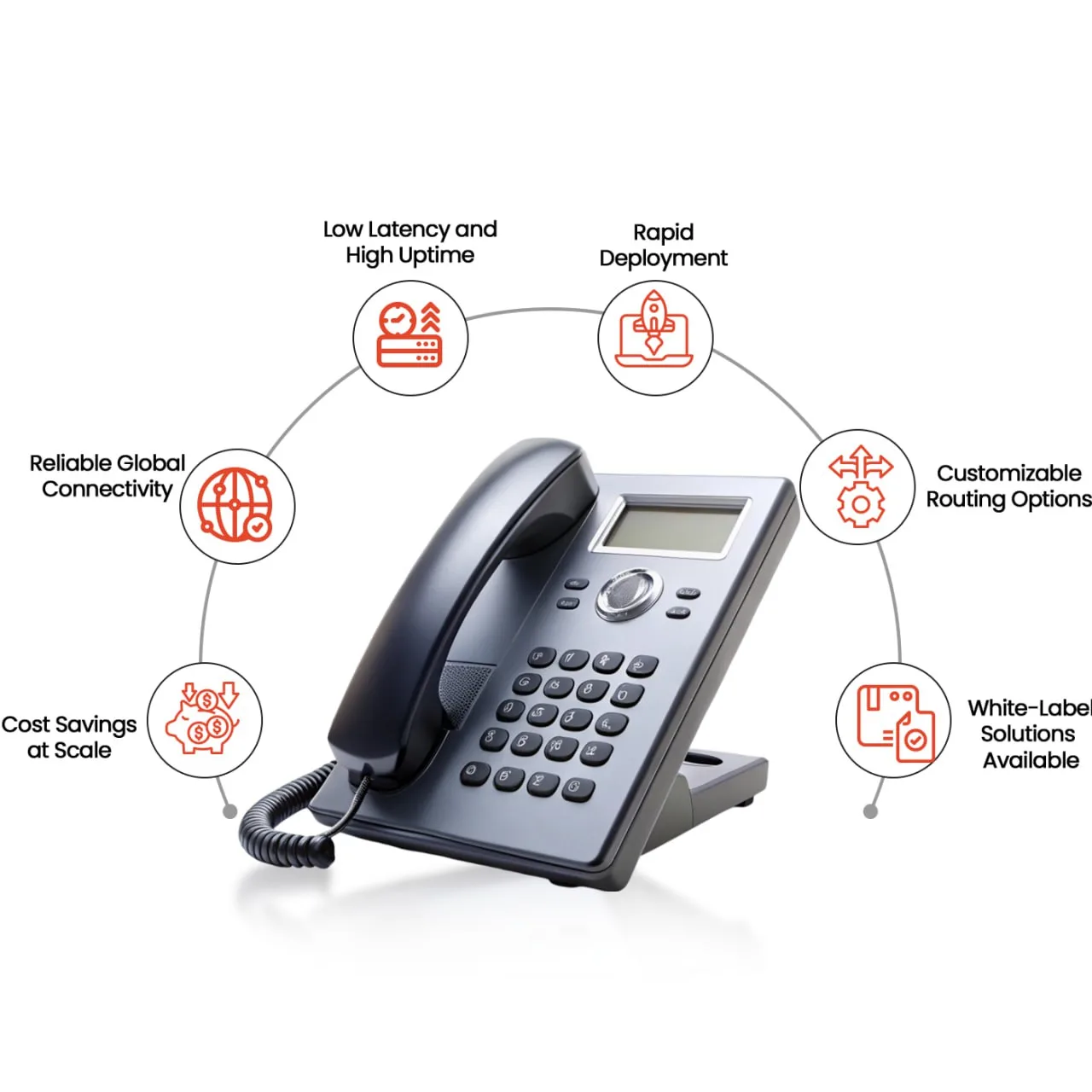Our VoIP Services
Why Choose VoIPTech Solutions For VoIP Services?
-
Carrier-Grade SIP Infrastructure
Reliable and scalable network for all voice traffic.
-
Secure and Encrypted Calls
Enterprise-grade encryption for data protection.
-
Flexible Billing Options
Choose prepaid, postpaid, or custom credit models.
-
Easy Integration
Compatible with CRM, ERP, and cloud platforms.
-
24/7 Technical Support
Always-on support by dedicated VoIP experts.
-
Real-Time Analytics Dashboard
Instant access to call logs, usage, and billing.

Key Benefits of Choosing VoIPTech Solutions for VoIP Services
-
Cost Savings at Scale
Get better rates with higher call volumes and tailored packages.
-
Reliable Global Connectivity
Premium CLI and Non-CLI routes ensure seamless worldwide calling.
-
Low Latency and High Uptime
Calls stay crisp, stable, and uninterrupted.
-
Rapid Deployment
Go live within hours after signup.
-
Customizable Routing Options
Optimize call quality based on region, volume, and business needs.
-
White-Label Solutions Available
Resell VoIP services under your brand effortlessly.

Industries We Serve
We offer reliable VoIP services to power seamless communication for businesses of all sizes ensuring cost-effective, high-quality voice solutions across industries
-
🏢
Call Centers & BPOs
Handle thousands of calls daily with high CPS support.
-
🏥
Healthcare
Secure communication between doctors, patients, and service teams.
-
💼
Finance & Insurance
Encrypted, clear voice channels for client communication.
-
🛍️
E-Commerce & Customer Support
Streamlined communication for better customer service.
-
🏫
Educational Institutions
Voice support for remote learning and administration.
-
✈️
Travel & Hospitality
Connect globally with customers and partners with ease.
-
📞
Telemarketing Agencies
Efficient and affordable outreach solutions.
-
🌐
VoIP Resellers
Reliable infrastructure ready for rebranding.

Our Working Process
Connect with Our VoIP Experts
Fill out our inquiry form, email us, or call directly.

Choose Your VoIP Plan
Select a service package based on your needs or request a custom plan.

Configure and Go Live
Our team will configure your SIP settings—go live within hours








